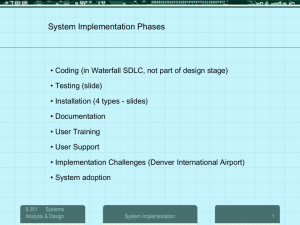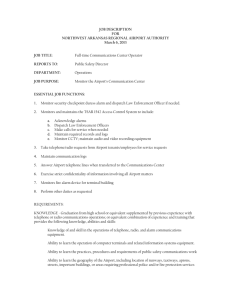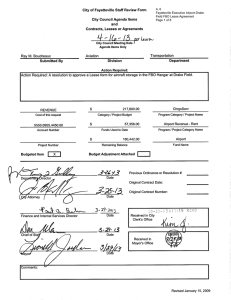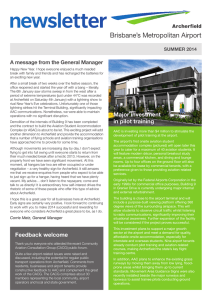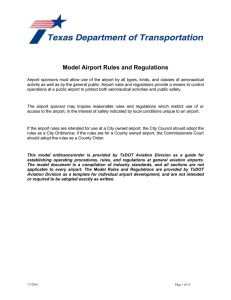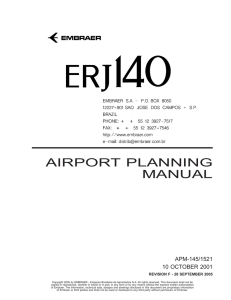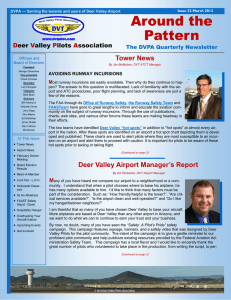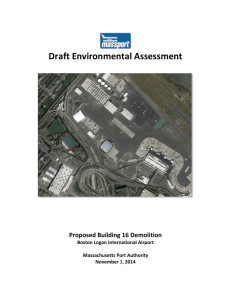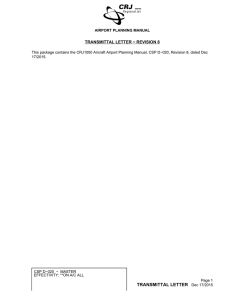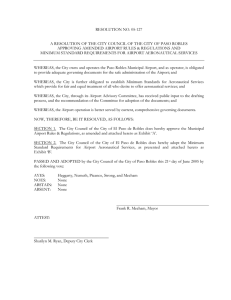Structural Design Abstract Transportation Design
advertisement
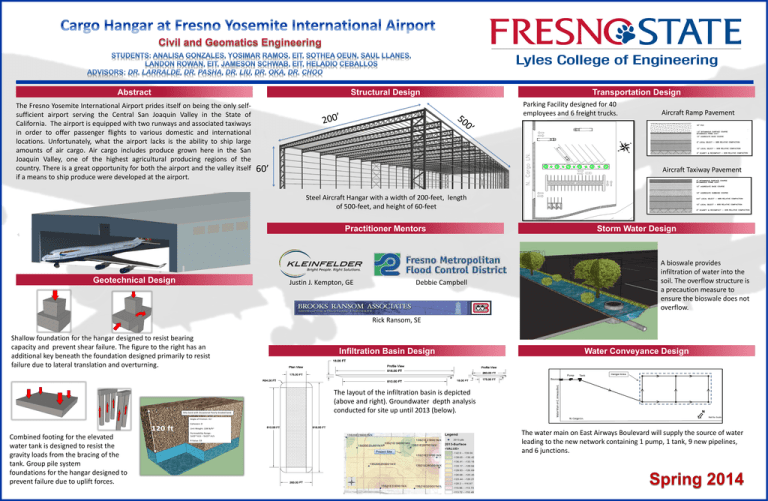
Abstract The Fresno Yosemite International Airport prides itself on being the only selfsufficient airport serving the Central San Joaquin Valley in the State of California. The airport is equipped with two runways and associated taxiways in order to offer passenger flights to various domestic and international locations. Unfortunately, what the airport lacks is the ability to ship large amounts of air cargo. Air cargo includes produce grown here in the San Joaquin Valley, one of the highest agricultural producing regions of the country. There is a great opportunity for both the airport and the valley itself if a means to ship produce were developed at the airport. Structural Design Transportation Design Parking Facility designed for 40 employees and 6 freight trucks. 60’ Aircraft Ramp Pavement Aircraft Taxiway Pavement Steel Aircraft Hangar with a width of 200-feet, length of 500-feet, and height of 60-feet Practitioner Mentors Geotechnical Design Justin J. Kempton, GE Debbie Campbell Storm Water Design A bioswale provides infiltration of water into the soil. The overflow structure is a precaution measure to ensure the bioswale does not overflow. Rick Ransom, SE Shallow foundation for the hangar designed to resist bearing capacity and prevent shear failure. The figure to the right has an additional key beneath the foundation designed primarily to resist failure due to lateral translation and overturning. Infiltration Basin Design Water Conveyance Design The layout of the infiltration basin is depicted (above and right). Groundwater depth analysis conducted for site up until 2013 (below). Combined footing for the elevated water tank is designed to resist the gravity loads from the bracing of the tank. Group pile system foundations for the hangar designed to prevent failure due to uplift forces. The water main on East Airways Boulevard will supply the source of water leading to the new network containing 1 pump, 1 tank, 9 new pipelines, and 6 junctions.
